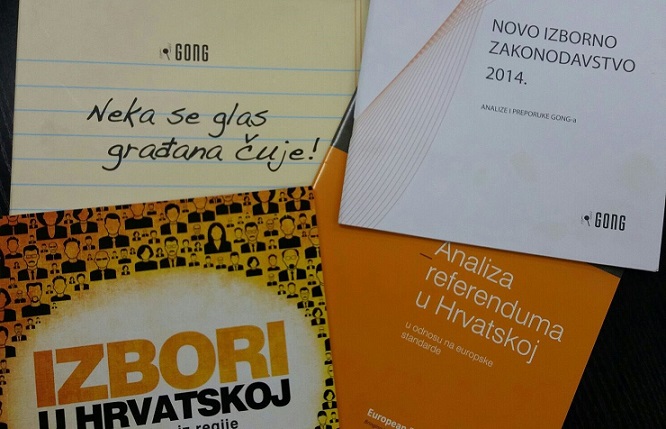In the current year we have once again been witnesses to the political irresponsibility of the government to start a reform of the electoral and referendum legislation. In the upcoming year we will be faced with the unadjusted electoral units, incomplete regulation of referendums and paper voting.
In October 2019 the ninth assembly of the Croatian Parliament went into the last year of its term of office, which means that is when the moratorium on changes of the electoral legislations recommended by the Venice Commission started, and we are less than a year from another parliamentary elections. Gong therefore concludes that the current ninth parliamentary assembly missed to start the implementation of the comprehensive and systemic reform of the electoral and accompanying referendum legislation.
This situation is even more concerning because in the last couple of years we have witnessed the additional erosion of already low levels of citizens’ trust in the political institutions and politicians, the ever lower levels of citizens participating in the elections and, the most concerning, the strengthening of the authoritarian attitudes in one part of the citizens, which, when all taken into account, leads us to the conclusion that the democracy in Croatia is in serious crises, some would even say it is deconsolidating.
As a response to that state, Gong wants to encourage a serious and systemic discussion, giving the recommendations aimed towards several areas:
1. More just electoral units
Gong advocates for implementation of six electoral units where the number of representatives elected in a unit can vary, depending on the number of citizens, according to the census.
2. Higher influence of preferential voting
Keeping the closed, unblocked lists with the increase in the number of preferential votes to three (on one list) and lowering the threshold for validity of preferential votes to 5%.
3. Better regulated referendums
Assigned areas and questions that cannot be the object of deciding in a referendum, easier initiation of a national referendum and a longer deadline for the acquisition of signatures.
4. Mixed composition of the State Electoral Commission
The SEC, which comprises of lawyers and people from other relevant professions (political science, economics, computer science, etc.) that can give a good base for understanding the election processes.
5. Electronic voting
After conducting the systemic and sound preparations, during which all the possible uncertainties and fears related to the implementation of electronic voting via the Internet, the implementation of electronic voting.
Gong is a Centre of Knowledge in the area of Civil Activism and the Building of Democratic Institutions within the framework of Development Cooperation with the National Foundation for Civil Society Development.


